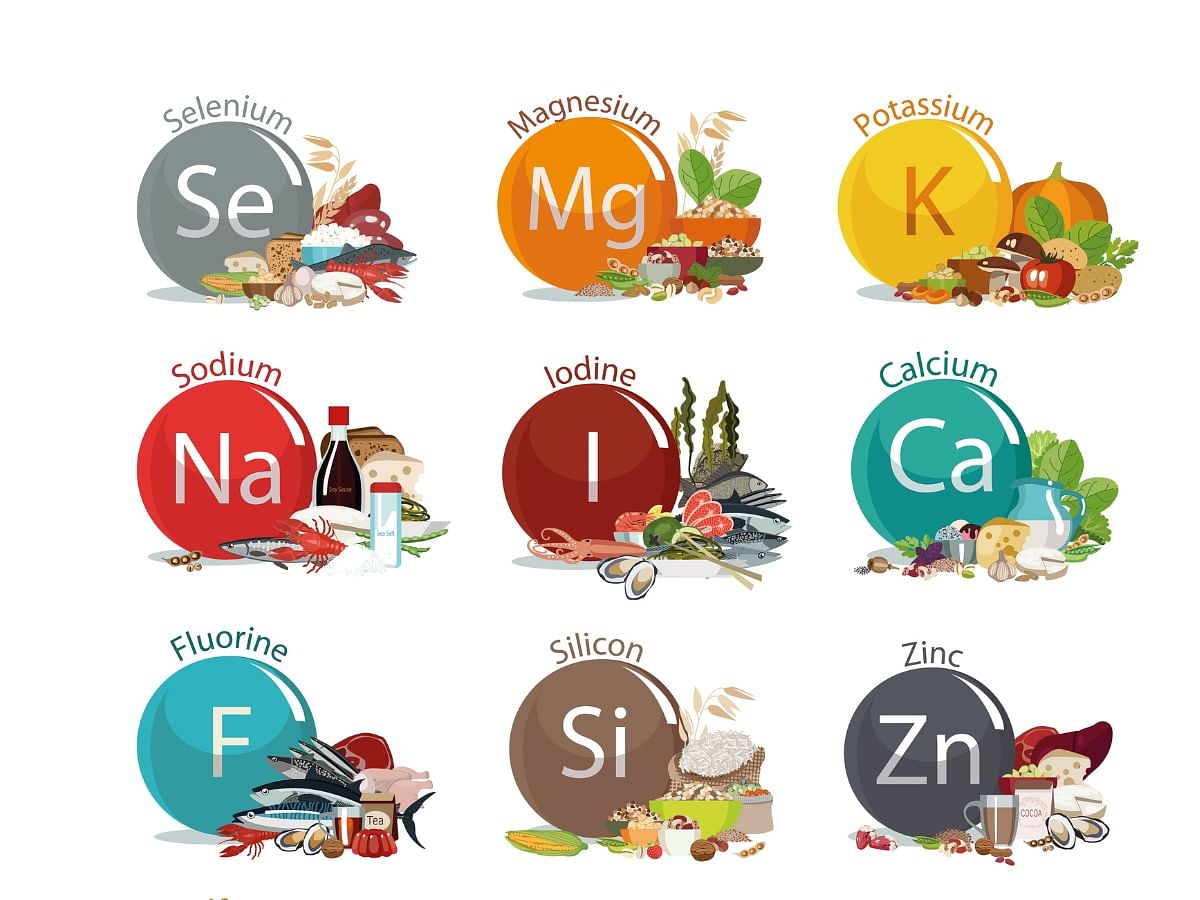
The Significance of Macro-Minerals: Calcium, Magnesium, and Potassium in Our Diet
Minerals are essential nutrients that play a vital role in maintaining various physiological processes within the human body. Among these minerals, macro-minerals such as calcium, magnesium, and potassium hold a special place due to their abundance and critical functions. In this comprehensive article, we will delve into the importance of these three macro-minerals in our diet, exploring their roles in bone health, muscle function, electrolyte balance, and overall well-being.
Understanding Macro-Minerals
Macro-minerals are minerals that the body requires in relatively large amounts compared to trace minerals. While they are present in smaller quantities than macronutrients like carbohydrates, proteins, and fats, their significance cannot be underestimated due to the fundamental roles they play in our health.
**1. *Calcium: The Foundation of Strong Bones and Beyond*
Calcium is perhaps the most well-known macro-mineral, renowned for its role in building and maintaining strong bones and teeth. However, its influence extends far beyond the skeletal system. Calcium is involved in:
- Bone Health: About 99% of the body’s calcium is stored in bones and teeth, providing structural support and strength.
- Muscle Contraction: Calcium is essential for muscle contraction, enabling muscles to contract and relax properly.
- Blood Clotting: It plays a vital role in blood clotting, a process necessary to prevent excessive bleeding.
- Nerve Transmission: Calcium is crucial for transmitting nerve signals, ensuring effective communication between nerve cells.
2. Magnesium: Enabling Metabolism and Muscle Function
Magnesium is often called the “master mineral” due to its involvement in over 300 enzymatic reactions within the body. Its key functions include:
- Energy Metabolism: Magnesium is necessary for the conversion of food into energy and the synthesis of DNA and RNA.
- Muscle and Nerve Function: Like calcium, magnesium contributes to muscle and nerve function, helping muscles contract and relax.
- Heart Health: Magnesium plays a role in maintaining a regular heartbeat and supporting cardiovascular health.
- Bone Health: It aids in calcium absorption and is involved in bone formation.
3. Potassium: Balancing Fluids and Controlling Blood Pressure
Potassium is an essential mineral that maintains fluid balance and supports nerve and muscle function. Its roles include:
- Fluid Balance: Potassium helps regulate the balance of fluids within cells and the surrounding tissues, ensuring proper hydration.
- Electrolyte Balance: Along with sodium, potassium is a key electrolyte that supports nerve impulses and muscle contractions.
- Blood Pressure Regulation: Adequate potassium intake can help counteract the effects of sodium, potentially lowering blood pressure.
- Heart Health: Potassium supports normal heart rhythm and contributes to cardiovascular health.
The Importance of Balanced Intake
Balancing the intake of calcium, magnesium, and potassium is crucial for overall health. An imbalance in these minerals can lead to various health issues, including osteoporosis, muscle cramps, irregular heartbeats, and high blood pressure.
Sources of Macro-Minerals
A well-rounded diet rich in a variety of foods can help ensure an adequate intake of these macro-minerals:
- Calcium: Dairy products (milk, cheese, yogurt), leafy greens (spinach, kale), fortified foods (cereals, plant-based milk), and some fish (like canned salmon with bones) are good sources of calcium.
- Magnesium: Nuts (almonds, cashews), seeds (pumpkin seeds, sunflower seeds), whole grains (brown rice, quinoa), and leafy greens (spinach, Swiss chard) are magnesium-rich foods.
- Potassium: Fruits (bananas, oranges, melons), vegetables (potatoes, tomatoes, spinach), and legumes (beans, lentils) are excellent sources of potassium.
Conclusion
In conclusion, the macro-minerals calcium, magnesium, and potassium are indispensable for maintaining optimal health and well-being. Their multifaceted roles encompass bone health, muscle function, nerve transmission, energy metabolism, and electrolyte balance. A balanced diet that includes a variety of nutrient-rich foods is essential to ensure an adequate intake of these critical macro-minerals. Recognizing their importance and making conscious dietary choices can contribute to a healthier, more vibrant life.



